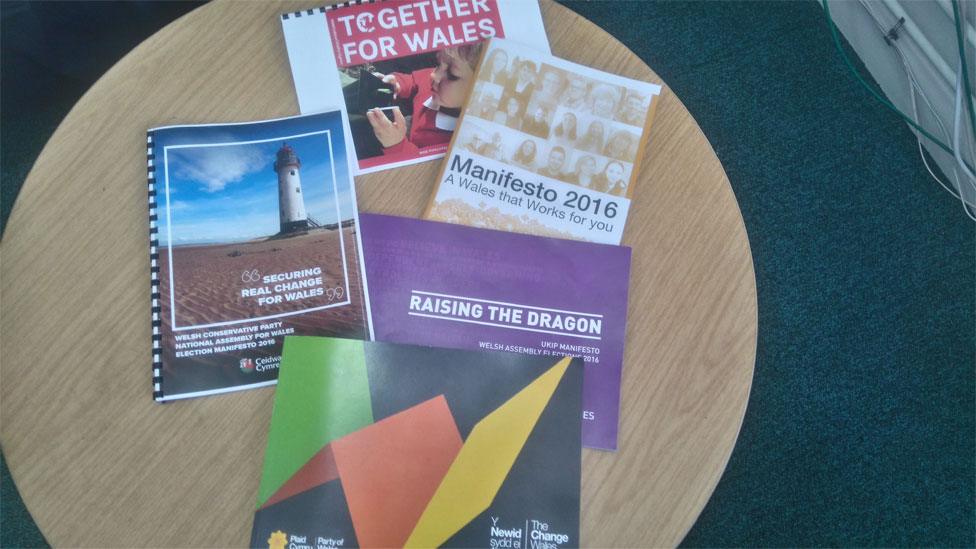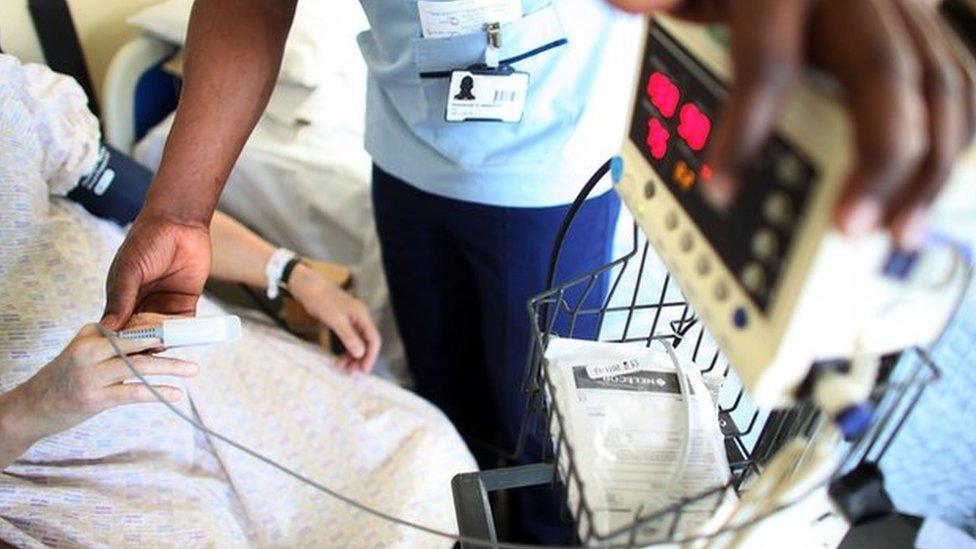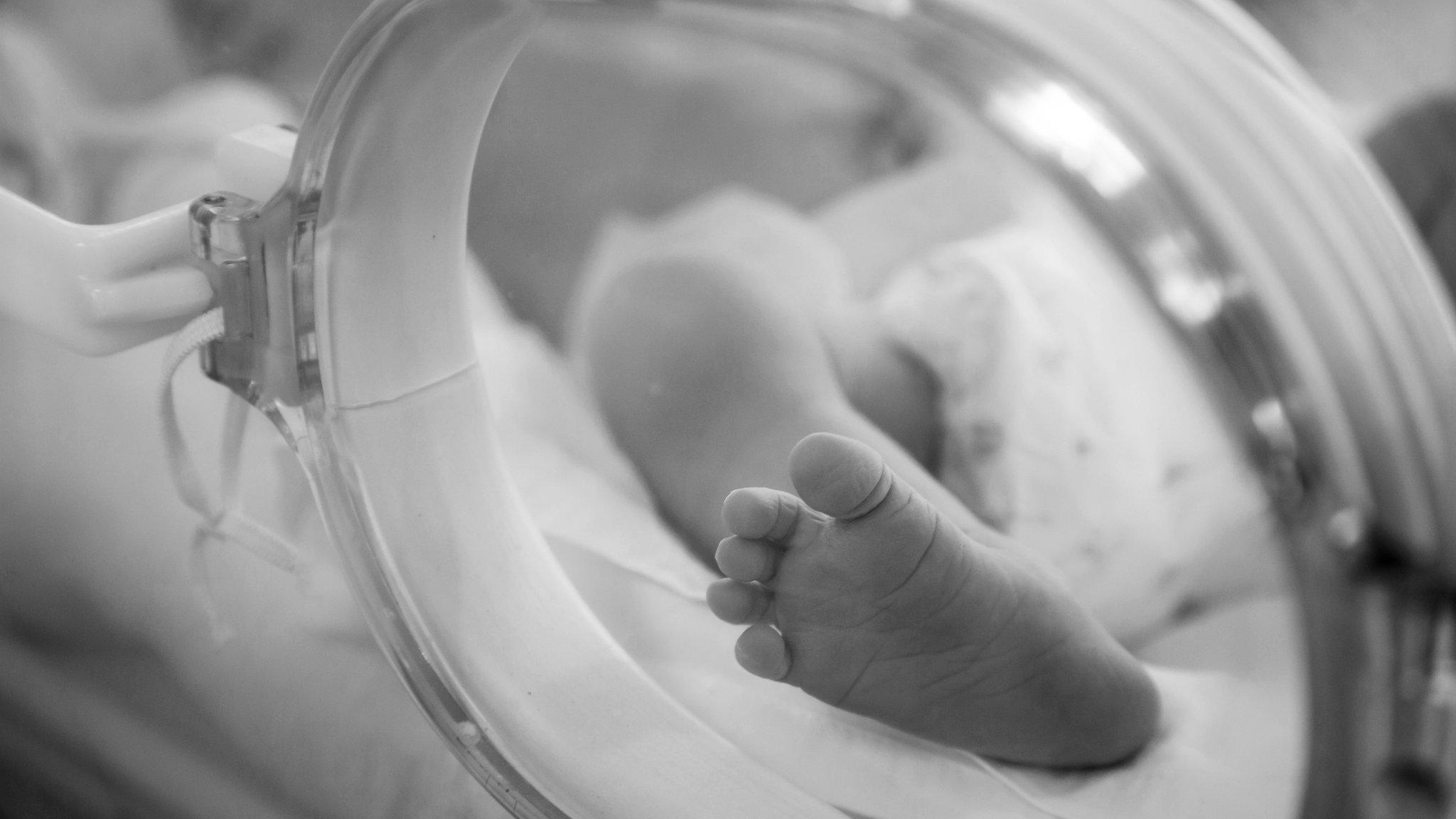'Radical changes' needed for NHS Wales to cope - confederation
- Published
Vanessa Young said the NHS needs to make hard decisions now
The Welsh NHS needs to make "radical changes" in order to cope with ever increasing demand, said the new boss of the body representing health boards.
Vanessa Young, director of the NHS Confederation in Wales, wants a "shift in focus" with resources moving from hospitals to the community.
Shortages of staff needed to be tackled and the NHS has to be set up to cope with the needs of an ageing population.
She wants the incoming Welsh Government to set out a "10-year vision".
Ms Young took up her post on Monday , externalat the body which represents the seven health boards in Wales.
She wants the public to be fully aware of what lies ahead - as well as taking more responsibility for their own health.
The background to it is that the number of over 65s will increase by 50% in the next 20 years.
'Engaging the public'
"The debate needs to involve patients and the public," she said
"It's very much about engaging the public in understanding the scale of the challenge and the health needs of the population.
"It's about having that debate publicly about what changes are needed - it's going to be difficult, there's no doubt about that."
She said the incoming Welsh Government needed to set out a 10-year strategy and vision for the health service.
The NHS in north Wales in particular has been under intense scrutiny in recent years.
Betsi Cadwladr Health Board remains in so-called "special measures" due to concerns about mental health care, GP-cover and management failings.
And controversial plans to change the way maternity services were delivered across the region were abandoned following a public outcry.
Campaigner Mair Dempster-Jones said proper consultation was important with changes.
"That was a step too far," she said.
'Uncertainty'
"People understand there needs to be a change in the NHS but they have to do it with us - not against us."
Dr Phil White, of the British Medical Association, said: "All the uncertainty and the bad press has probably adversely affected recruitment within the hospital sector and primary care.
"It's about time we undid some of these myths and say north Wales is a wonderful place to work, a wonderful environment and should be actively promoted as a place to come and work."
He said in the past month at his practices in Menai Bridge and Felinheli he had referred half a dozen patients with suspected cancer who had been seen within two weeks - and one within five days.
"The only complaints we have are people being moved around the place or having operations cancelled because beds aren't available," he added.
"If we tackled this hospital-community issue and got people out of hospital as soon as they were ready rather than waiting around for placements, then the whole system would work more efficiently."
Paediatrician Mair Parry said child health needed to be a priority and a long-term plan which went beyond one minister's term.
"One of the biggest challenges in Wales for child health is the prevention of particular illnesses - we have the fattest population of children in the UK, and the highest proportion of children with diabetes and we're spending millions on the management of diabetes in adults.
"If we spent that money in childhood on prevention of obesity and development diabetes, we'd save millions in the long run."


Asking the parties - what would you do for the NHS in north Wales?
LABOUR: "Improvements are being made (at Betsi Cadwaladr). There is a new chief executive; new board members and new staff - but we will not walk away." The party pledges extra resources and support needed "to ensure people in North Wales have high-quality services, including reviewing the governance structure if necessary".
LIB DEMS: Promise to retain consultant-led maternity services at all three district general hospitals and do not support "mass top-down re-organisation" but believe money should go straight to the front line. Pledges include an access to GP scheme because "people here are absolutely fed up of finding it a real struggle to make an appointment and access their GP in North Wales"
CONSERVATIVES: The party would re-establish minor injuries units at Colwyn Bay hospital and in the Rhyl/Prestatyn area. It would prevent hospital closures and any reorganisation during the Assembly term, "ending uncertainty about future service configuration".
PLAID CYMRU: It said it would scrap Betsi Cadwaladr health board, replacing it with a Community NHS. Pledges include a consultant led A&E within one hour's travel of all communities and a cancer diagnostic centre in north Wales.
UKIP: Promises a slimmed down and accountable health boards which "would prevent the buck passing between the board and the Welsh Government which we have seen with Betsi Cadwaladr. It would halve the number of managers earning six figure salaries in the NHS and reinvest resources to wards.
- Published4 April 2016

- Published4 April 2016

- Published1 March 2016

- Published8 December 2015
